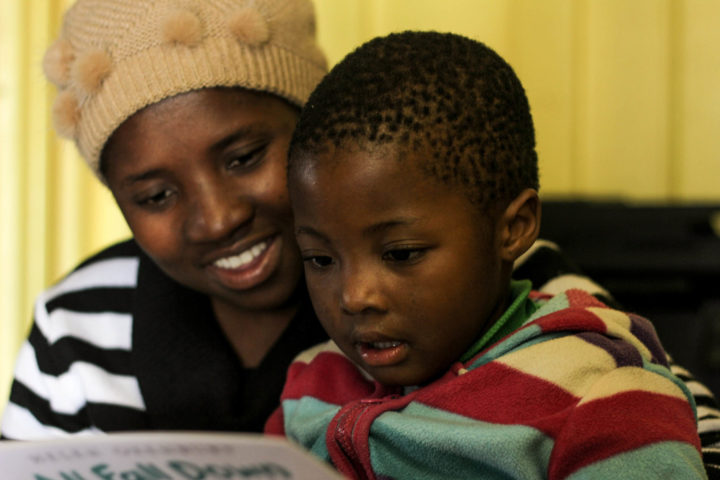Simple parenting changes such as sharing and discussing picture books are steering disadvantaged children in low-income countries towards happier, more successful lives.
Sitting down and looking at a picture book with your child might not be a priority for parents struggling with poor mental health or to make ends meet. But Reading research with disadvantaged families in low-income countries has shown that simple changes like book-sharing can have powerful effects on a child’s development that last a lifetime.
Working with communities in South Africa, Reading Professors Peter Cooper and Lynne Murray trialled a programme to train parents in how to share picture books with their young children. This included looking together at the pictures – known as ‘joint attention’ – and talking about what might be happening in them.
Six months after the short training intervention, children whose mothers had received the training showed marked improvements in language, attention, empathy and social understanding, both during book-sharing and while playing.
The World Health Organization (WHO) has adopted these findings into policy, along with other research by the Reading duo which showed that supporting new mothers until their babies are five months old can benefit child development. Now part of the WHO’s Parenting for Lifelong Health initiative they have influenced international, national and local organisations who put childhood development policies into practice.
Through Cooper and Murray’s Mikhulu Trust charity and affiliated organisations, more than 30 organisations across the world that support families in disadvantaged communities now use the book sharing programme – from the UK to the mountains of Lesotho. This is helping to steer children worldwide on a course towards happier, more successful lives.
Partners: The Mikhulu Trust, South Africa and over 20 international non-profit organisations (such as Save the Children, South Africa), several government bodies (e.g. the Municipal Government of Pelotas, Brazil), and universities in the UK and five other countries. For further information and an up-to-date list of partners, please visit the Mikhulu Trust website.
Find out more
View the full impact case study on the REF 2021 website: Promoting child cognitive and socio-emotional development in conditions of adversity

